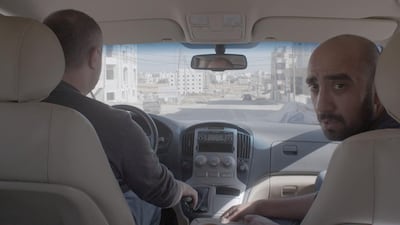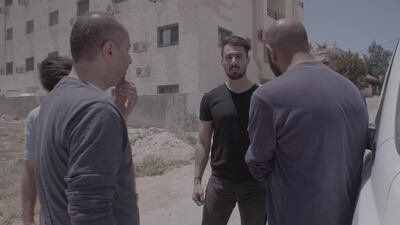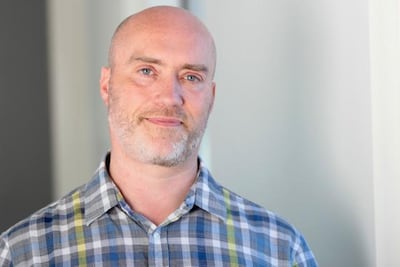In 1967, Czech filmmaker Raduz Cincera premiered his experimental piece, Kinoautomat, widely accepted as the first interactive film, at the Montreal Expo. Five decades on, the genre remains somewhat elusive, a novelty in the film industry.
Had Cincera's satire not fallen foul of the ruling Czech Communist Party, which banned the film and refused to licence the state-owned technology to eager Hollywood studios, perhaps the story of interactive film would have been very different. The term is likely to inspire blank stares among many, despite Charlie Brooker's recent attempt at reviving the genre with his Black Mirror: Bandersnatch interactive movie on Netflix.
Brooker's film allows the viewer to intervene via the remote control, choosing the protagonist's next action, thus dictating the next scene, bringing the interactive film concept as close to the mainstream as it has ever been. But that elusiveness remains. Quite simply, what is interactive film?
For some, it's a gaming experience, as evidenced by the 1980s Laserdisc classic Dragon's Lair or more recent movie-meets-game experiences such as Final Fantasy. For others, it's a high-art, experimental form of cinema as initially envisaged by its ill-fated Czech originator. Brooker's film probably sits somewhere between the two. For UK filmmaker Mike Todd, a self-confessed Dragon's Lair fan, it's about something much more tangible and somewhat unexpected – saving lives in the Middle East.
This week, Todd is launching a new interactive film, developed alongside the World Health Organisation, at South by Southwest festival in Texas. He is also the director and creative mind behind Frontline Humanitarian Toolbox, an interactive virtual reality movie shot in Jordan and developed by his production house Near-Life in partnership with the Norwegian Council for Refugees, Syrian NGO Spirit and the Red Crescent.
The film has become a vital educational tool for aid workers in Syria, where violence and now Covid-19 have rendered traditional training methods all but impossible.
In its simplest terms, the project is an interactive movie that uses a VR headset and role play to prepare aid workers for the many challenges they could come across in the field. Hostile roadblocks and roadside ambushes can all be replicated in an entirely safe and Covid-secure environment where, crucially, wrong decisions can be replayed.
In more complex terms, it is hundreds of hours of footage, shot over a period of months in Jordan and painstakingly researched along the Turkey / Syria border, condensed into what Todd says would typically be about an hour of interactive viewing, depending on the choices made. Todd and his team even went so far as to set up a "fake radio station" that real-life aid workers could call to discuss the challenges they faced in the field as part of their preparation.
While the attention to detail in the movie is clear, and the advantages of donning a VR headset to experience situations that may not offer a second chance in real life are undeniable, do the users of Todd's tool ever find it a little frivolous? After all, it could be seen as a video game being used to deal with what can be a terrifying reality.
"Actually, we've never had that," Todd says. "On the contrary, I think digital and remote learning are usually seen as something rather downbeat and dull, and this was something more vivid and realistic. We could have just filmed a scenario and then said: 'What would you do in this situation?' But I think this kind of gameplay experience really hits home, and we've only ever had positive responses."
Todd says despite the surface similarities, this interactive movie is a very different experience from those we may already be familiar with.
"Whereas something like Bandersnatch is pure entertainment, where you're exploring the different narratives, the focus of this is driving you to the outcomes of your choices," he explains. "You're not experimenting, but rather this is about not being in a situation where you almost fail before you've started."

Todd modestly admits he's among the first to widely use VR and interactive film technology in this context, but he's confident we'll see plenty more in future. Near-Life has recently launched an online tool that allows organisations to build their own interactive movies, while the focus of his new interactive film is on security training for emergency medical teams. It has already attracted interest from a number of aid organisations working in the Middle East.
Todd's own background is as an independent documentary-maker whose projects include films for big names such as the BBC and PBS. He has covered topics as diverse as the Kosovan crisis, Mexican immigration to the US and the late Liverpool FC manager Bill Shankly, in traditional documentary form.
But since Todd has now spent most of the past five years working in the interactive sphere, how would he describe himself today? Filmmaker, tech guru, educator or games designer? "The biggest thing for me is to create immersive storytelling," he says.
“I’m not so worried about trends like 3D or VR, even though people in the education space are very excited by that right now. It’s not about how you make the content, but what sits behind you when you make it, and how you make it easy to use, and hopefully make it easy for others to create content, too.
"Throughout my career I've always been about wanting to be part of that content revolution, but also helping others to be part of it, too, and that's still where I'm coming from right now."


